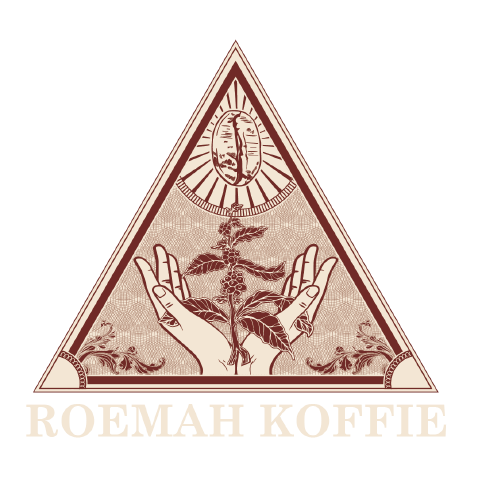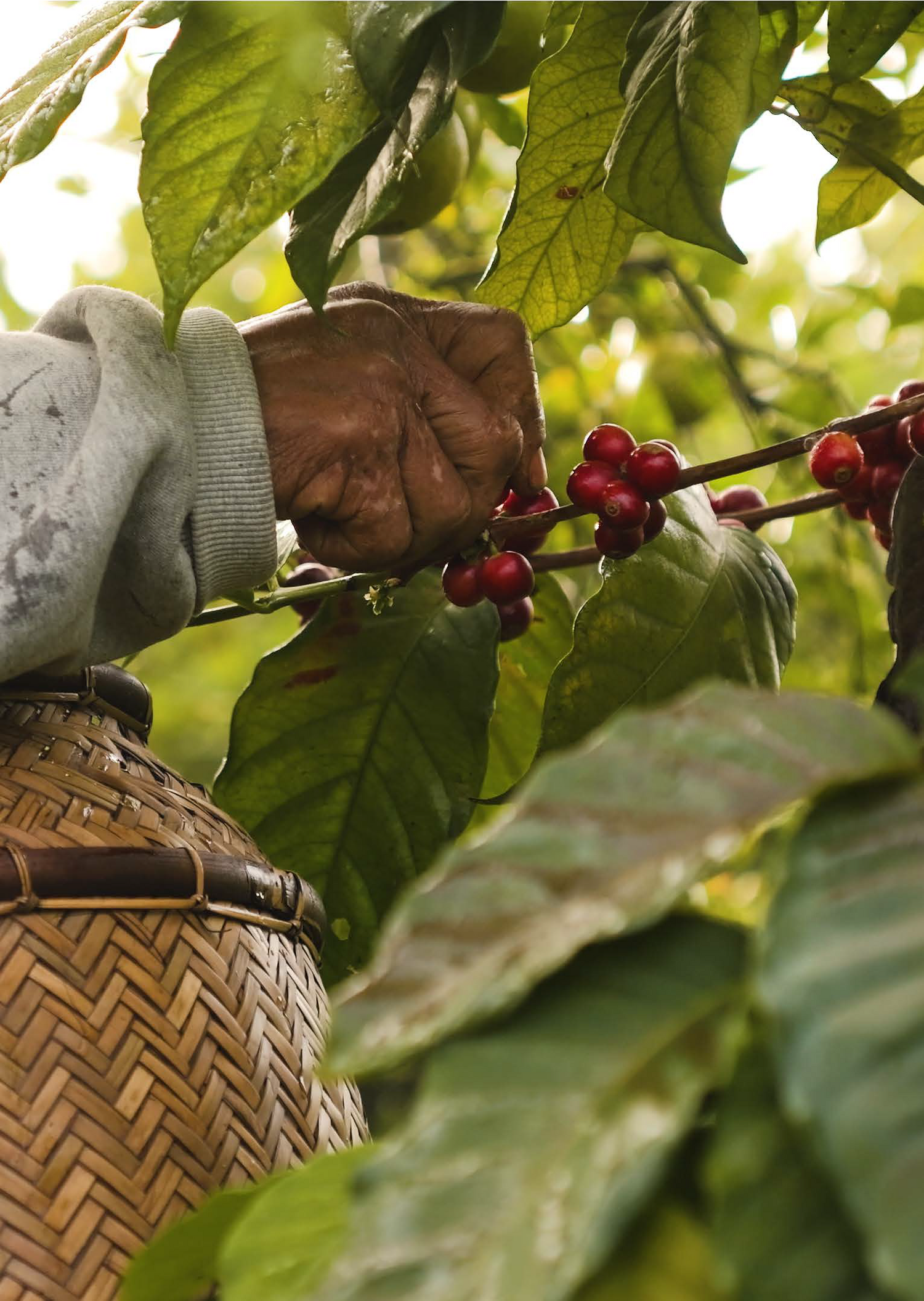
Discover Indonesia's exceptional coffee diversity
From the mist-shrouded highlands of Aceh to the lush valleys of Papua, Indonesia – an island nation of over 17,000 islands – offers an unparalleled breadth of green coffee beans and flavors.
This geographical and cultural variation is reflected directly in every cup, giving you access to a portfolio of coffee varieties that few other countries can match.
Behind every Indonesian coffee variety are generations of craftsmanship . Our coffee farmers, who often carry on traditions within their families, dedicate themselves to coffee production with exceptional dedication.
The unique "giling basah" (wet grinding) method is just one example of the timeless techniques that contribute to the distinctive character for which Indonesian coffee is known.
Choose Indonesian coffee to offer your customers an authentic taste experience rooted in rich culture and solid craftsmanship.
PRODUCTIVITY
Indonesia has more than 1.2 million hectares of farms, many of which rank among the largest coffee producers in the world, producing over 700,000 tons of green coffee annually.
These farmlands are mostly managed by small farmers and become the backbone of rural livelihoods in the country.
A BRIEF INTRODUCTION TO INDONESIA'S COFFEE CULTURE
Indonesia's diversity shapes not only the profiles of its coffees but also the traditions that surround them.
In Bali, coffee ceremonies are part of spiritual offerings, while in Toraja it is a way to strengthen community bonds. These traditions make Indonesian coffee not just a product but an experience – a reflection of a vibrant culture combined with unparalleled natural beauty.
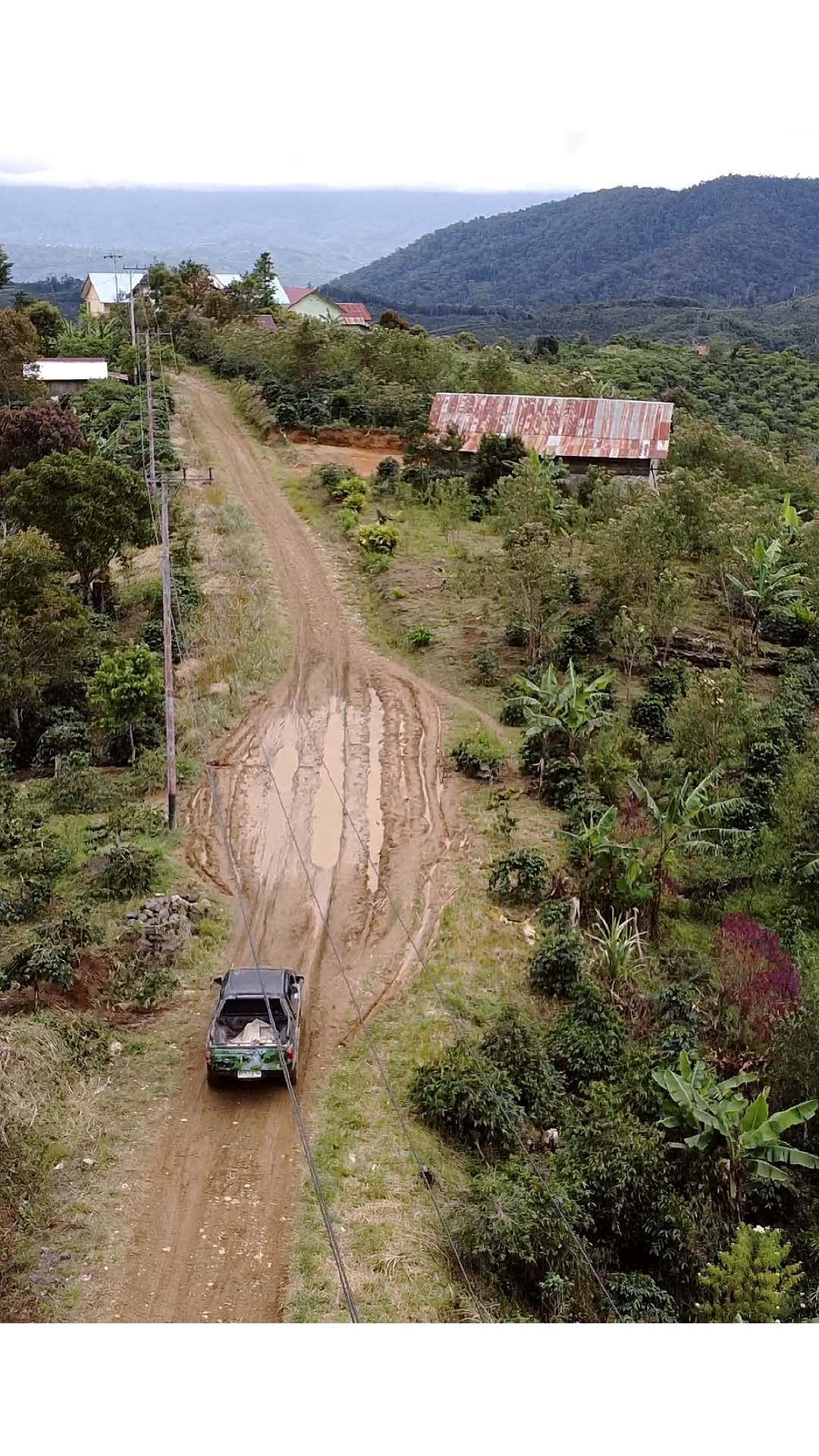
Gayo Coffee: Indonesia's premium Arabica for the B2B market
Discover the hidden treasure of the Aceh highlands – Gayo coffee.
This is not just coffee; it is a story of ideal growing conditions and remarkable volume. From Bener Meriah and Takengon, the Gayo Highlands’ 94,000 hectares of smallholder plantations supply over 70,000 tonnes of green coffee annually . This makes Gayo one of Indonesia’s most important coffee regions and a reliable source for large-scale B2B needs.
Our Gayo coffee , dominated by the robust Ateng Arabica hybrid , thrives at an altitude of 1,200–1,600 meters in
volcanic soil and cool climate. The result? Coffee beans with distinct and complex flavor profiles , from clear
citrus notes to earthy and herbal tones. With Gayo coffee you offer your customers a unique taste experience combined with delivery reliability.
Our Gayo coffee is available both as Giling Basah and as Natural.
Our Gayo coffee has certificates from:
- RAINFOREST ALLIANCE
- USDA ORGANIC
-FAIRTRADE INTERNATIONAL
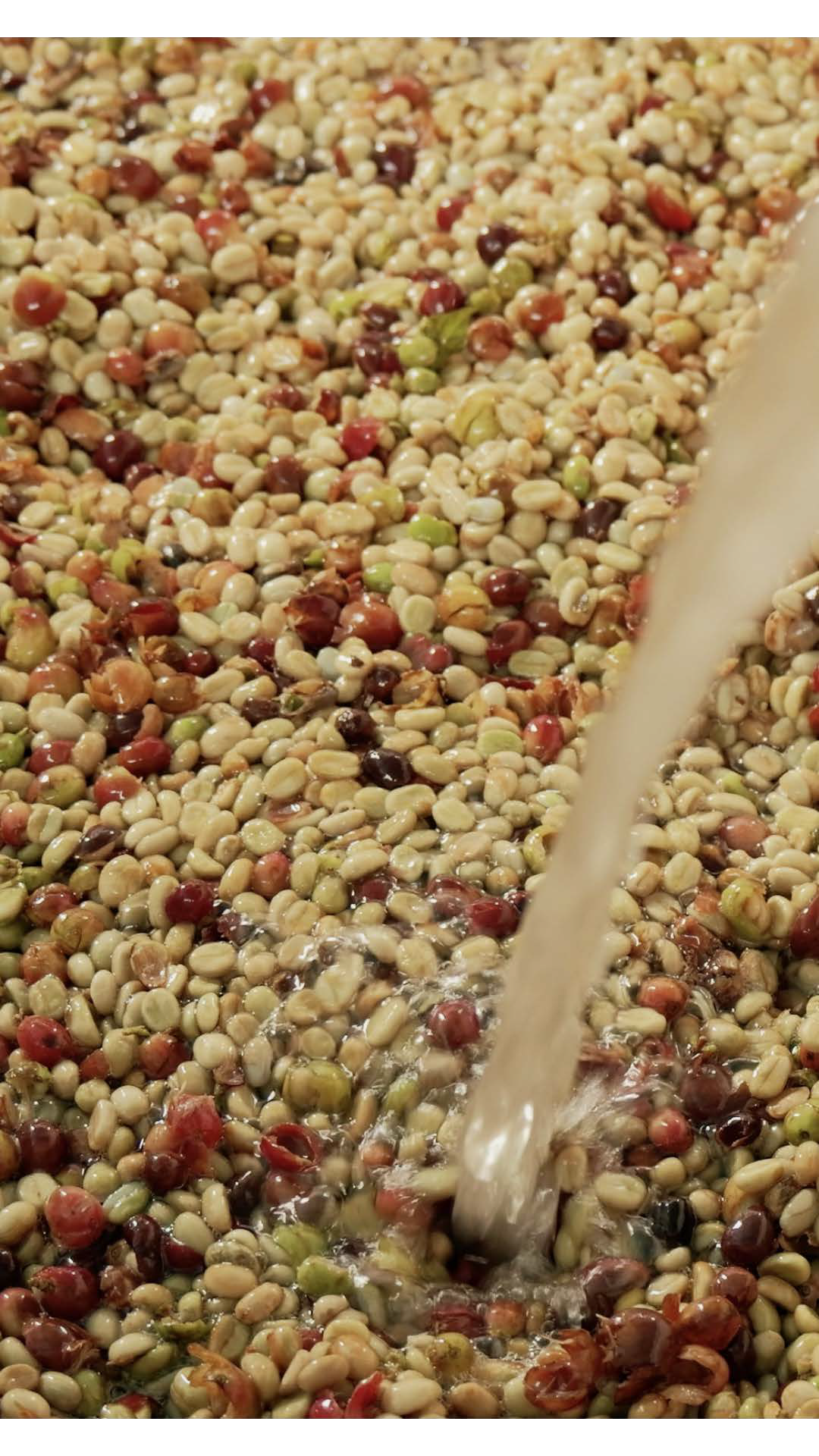
More about Giling Basah
The unique 'Wet-Hulled' coffee processing method, or Giling Basah as it is locally known, is the hallmark of Gayo coffee. This ancient Indonesian technique is deeply rooted in the Gayo Highlands and shapes the region's coffee profile.
The coffee production process
1. Harvest: Coffee cherries are carefully picked by hand at perfect ripeness, ensuring that only the best beans are processed.
2. Fermentation : The beans are allowed to ferment for a short period, often overnight, to naturally loosen the mucilage.
3. Hulling : In the wet hulling process, the beans are hulled while still damp. This step removes the parchment layer and exposes the soft, malleable green coffee beans.
4. Pulping: Immediately after harvest, the outer fruit layer of the cherries is removed, while the mucilage layer is left intact around the beans.
5. Partial drying : The mucilage-covered beans (called paper coffee) are partially dried to a moisture content of around 30-40%. This is markedly different from fully washed or natural processes, where the beans are usually dried significantly more before hulling.
6. Final drying: The shelled beans are then dried to a moisture content of around 12-13% before being sorted and packed for export.
Flavor profile
Full body
A rich and heavy mouthfeel that lingers on the palate.
Earthy and spicy notes
Hints of cedar, dark chocolate and herbal undertones.
Low acidity
A smooth and mild acidity that is appreciated by many coffee drinkers.
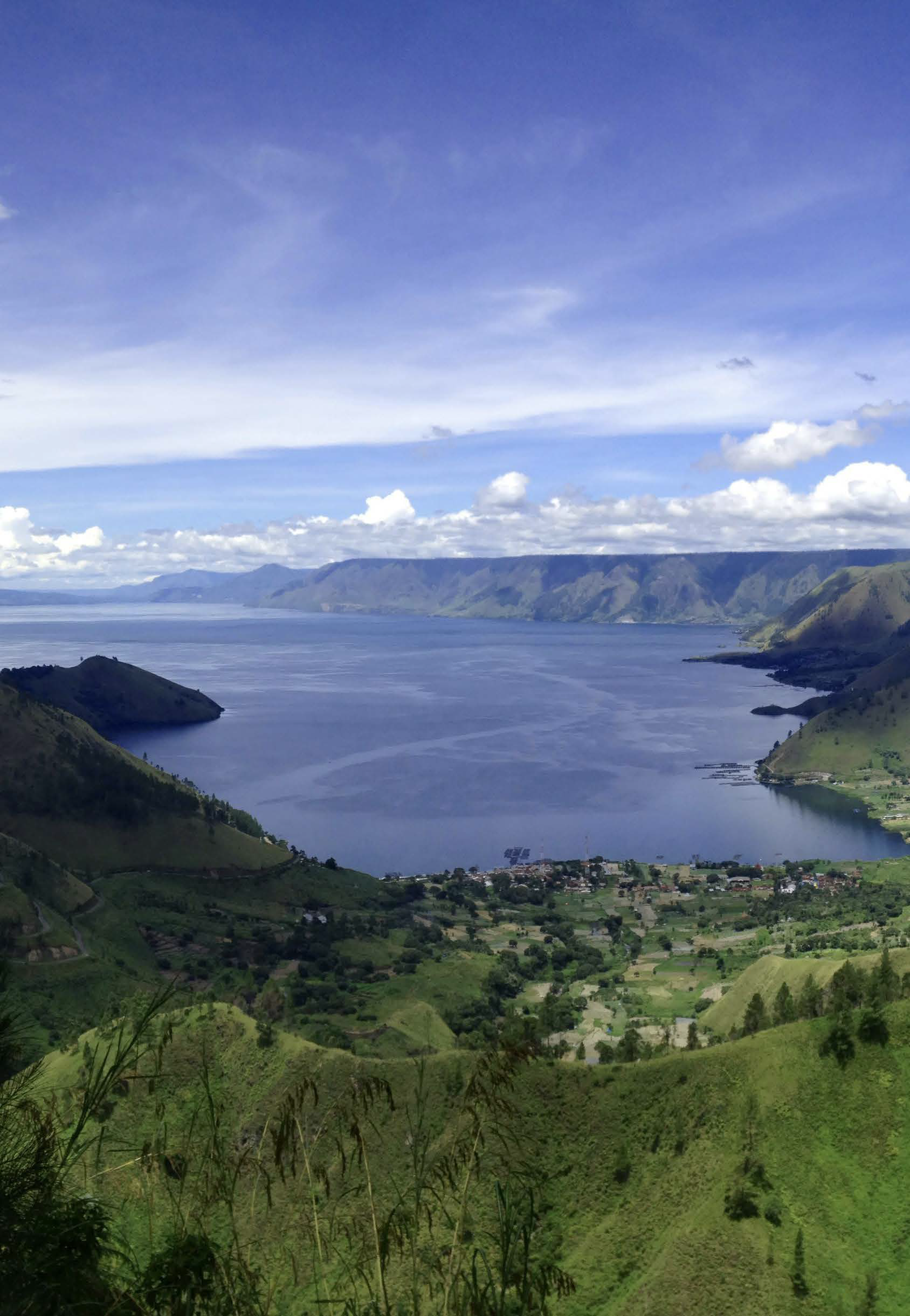
KARO HIGHLAND
The Karo Highlands – a coffee gem in North Sumatra
Situated on the fertile volcanic slopes near the famous Lake Toba, the Karo Highlands are one of North Sumatra’s coffee-growing havens. The region, which is highly biologically diverse and has outstanding natural beauty, offers rich coffee farms that benefit from the microclimate of the enormous caldera of Lake Toba – the world’s largest crater lake.
The Karo Highlands are home to over 30,000 hectares of coffee plantations, the majority of which are managed by smallholder farmers who have refined their skills over generations. The region produces approximately 10,000 tonnes of green coffee annually, much of which is grown using sustainable and organic methods. The commitment to organic farming has not only preserved the health of the soil but also strengthened the reputation of Karo coffee in the global market.
Our Karo Highland beans are available as:
- WET HOLE PROCESS
- NATURAL PROCESS
- CO-INOCULATION PROCESS
Our Karo Highland beans are certified by:
- USDA ORGANIC
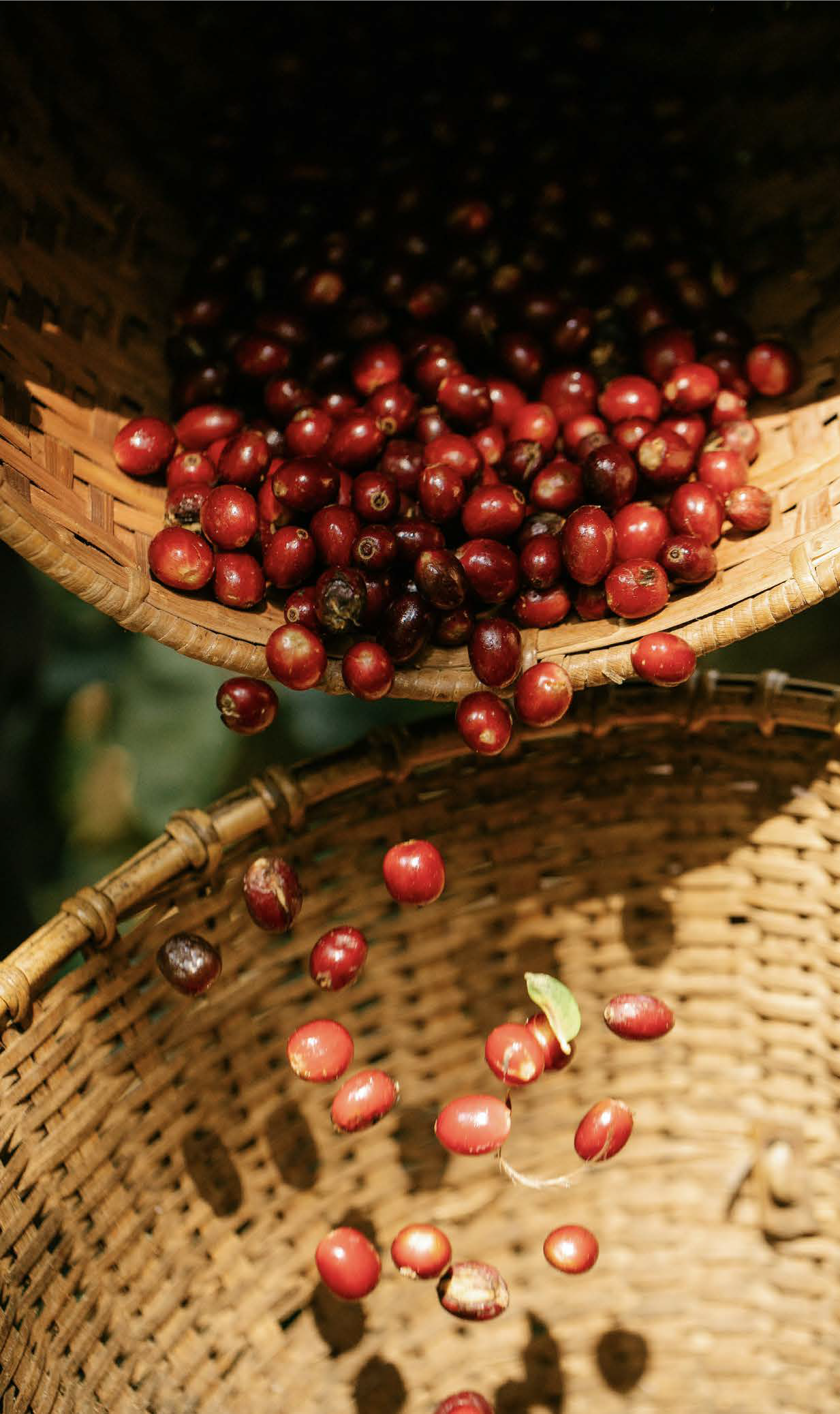
More about the Co-inoculation process
Karo Highlands innovation: Infused green coffee through co-inoculation
The Karo Highlands are at the forefront of the development of infused green coffee, a feat achieved through a careful co-inoculation method. The process involves the careful addition of selected microorganisms during fermentation. This allows for a complementary flavor infusion without altering the natural properties of the green beans.
Self-inoculation is a natural and controlled process that enhances the flavor profile of green coffee and creates new, exciting flavor experiences. For example, infused green coffee from the Karo Highlands can take on unique notes of tropical fruits, spices or floral accents, taking the coffee to a whole new dimension while remaining organic.
Flavor profile
TROPICAL
A rich and full-bodied mouthfeel that lingers on the palate.
SPICY
Hints of cedar, dark chocolate and herbal undertones.
FLORAL
A smooth and mild acidity that is appreciated by many coffee drinkers.
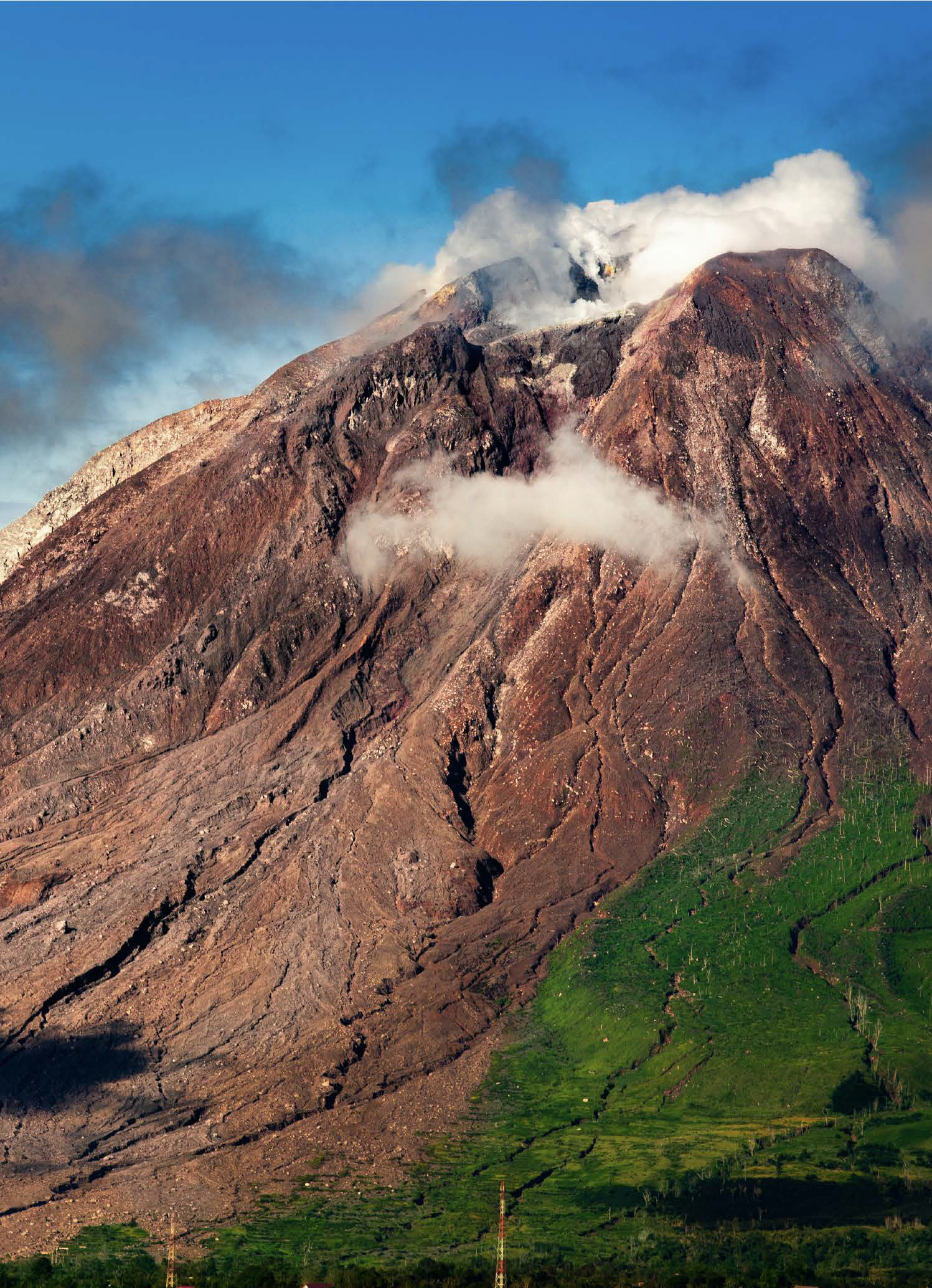
KARO ADVANTAGES
Ecological excellence
Karo Highlands coffee is grown primarily using organic methods, ensuring a product that is as sustainable as it is delicious.
Innovative infusion
Through co-inoculation, infused green coffee is introduced – a whole new dimension for coffee enthusiasts seeking distinctive flavors.
Volcanic terroir
Nutrient-rich volcanic soils and Lake Toba's moderating climate are responsible for the full-bodied and smooth cup profile that is so characteristic of Sumatra.
A connection to culture
Every sip of Karo coffee tells the story of the region's traditions and the breathtaking landscapes from which the coffee comes.
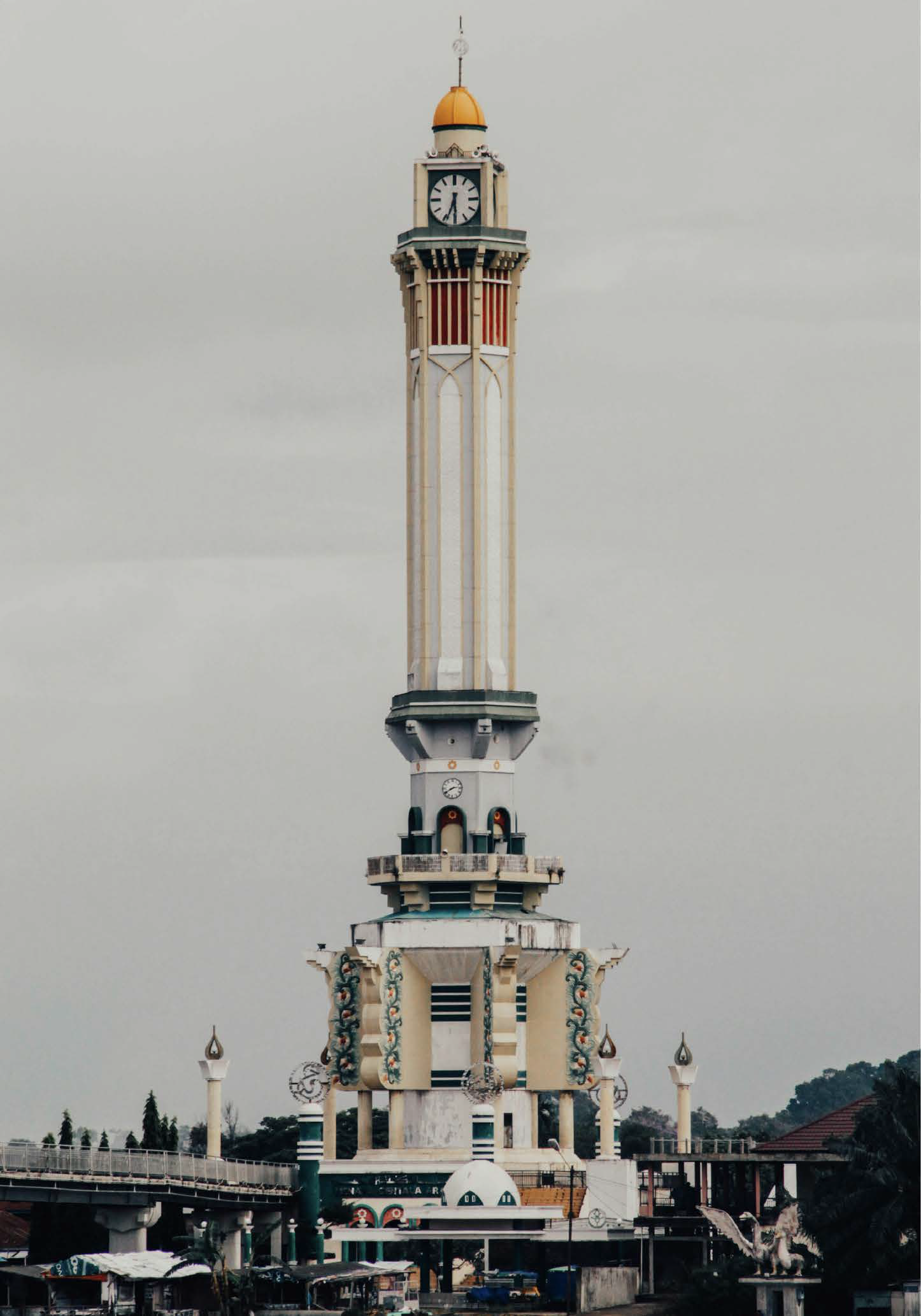
KERINCI
Kerinci, Jambi: A Coffee Pearl at Mount Kerinci
Nestled in the middle of Sumatra, at the foot of majestic Mount Kerinci , lies one of Indonesia's most enchanting coffee growing regions: Kerinci, Jambi . Surrounded by the lush landscapes of Kerinci Seblat National Park and the calm waters of Danau Gunung Tujuh , this region is a treasure trove of coffee growing.
Rich volcanic soil, cool highland air and an unwavering commitment to quality make Kerinci coffee a rising star on the global specialty coffee scene.
The coffee plantations in Kerinci cover approximately 2,500 hectares and are distributed on small plots owned by local farmers. These plantations are carefully managed and produce around 2,000 tons of green coffee annually. The majority of this coffee is grown at altitudes between 1,200 and 1,700 meters above sea level , where the optimal climate and soil produce the highest quality Arabica beans.
Our Kerinci, Jambi beans are available as:
- WET HOLE PROCESS
- ANAROBIC NATURAL PROCESS
- CO-INOCULATION PROCESS
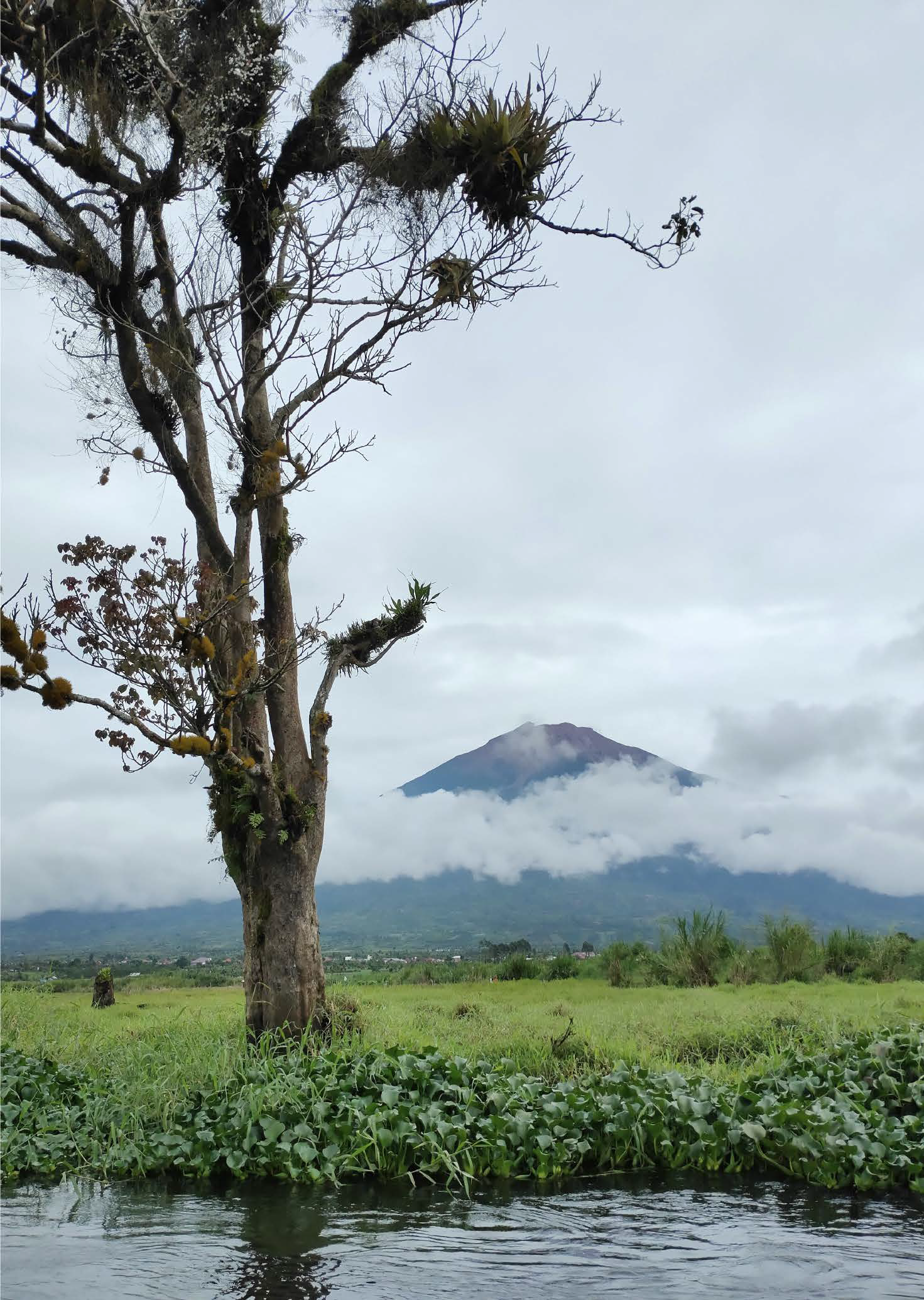
KERINCI ADVANTAGES
Distinctive characteristics of Kerinci coffee
Outstanding Terroir
The volcanic soils and high climate of Mount Kerinci produce beans with complex flavors and unique profiles.
Sustainable Methods
Many growers in the region focus on sustainable farming methods, ensuring that the rich biodiversity is preserved.
High-quality excellence
Kerinci is home to Cup of Excellence-winning producers, whose coffee consistently achieves scores above 85.
A tasty journey
A lively acidity, floral complexity and sweet fruity undertones make Kerinci coffee a representative of this enchanting region.
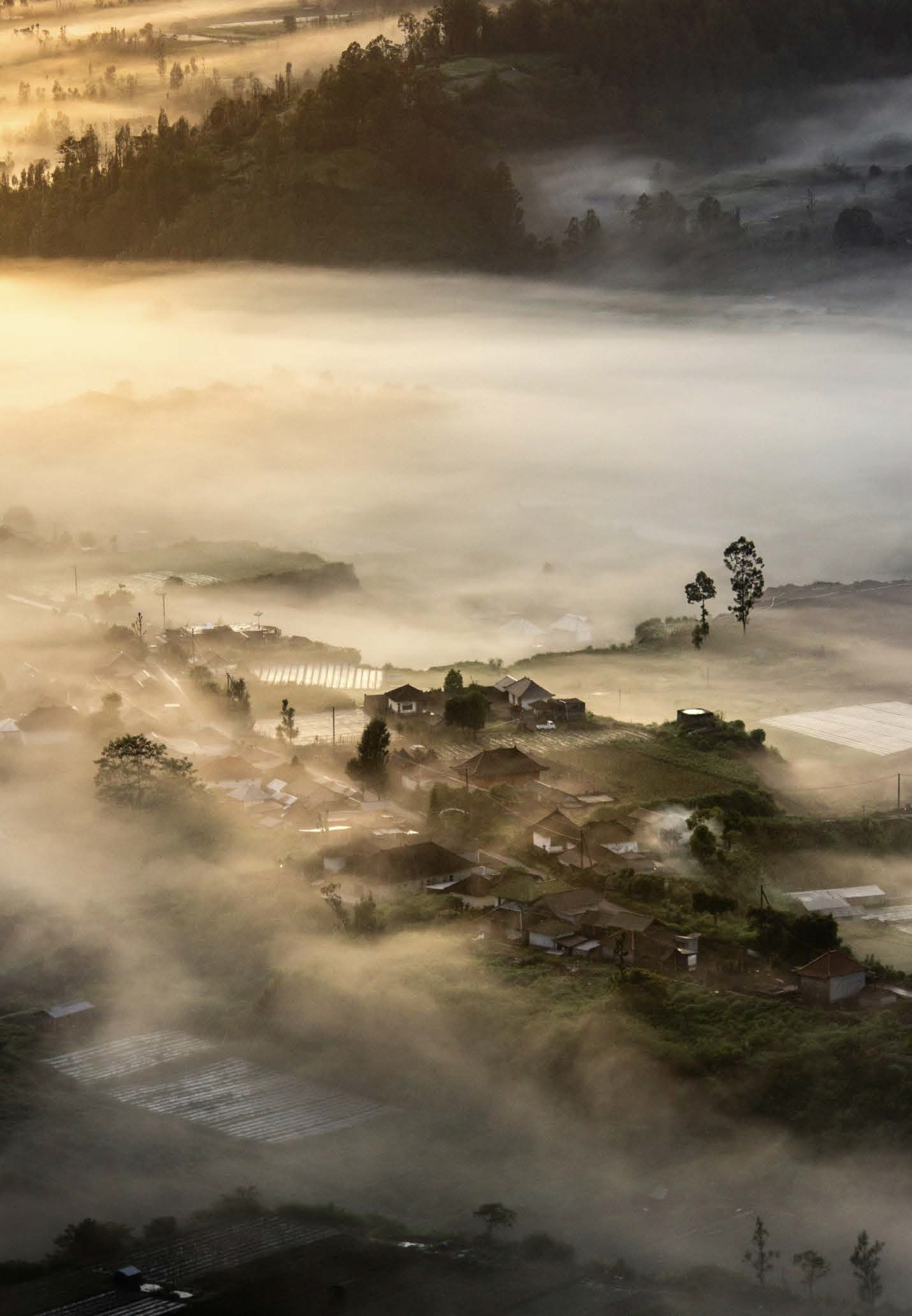
BALI KINTAMANI
Bali Kintamani: A Coffee Gem in Paradisiacal Bali
Bali Kintamani is located in Bali's central highlands region, known for its breathtaking landscapes , rich volcanic soils and unique coffee farming methods . Nestled between Mount Batur and Lake Batur, the Kintamani highlands offer a pristine environment that produces some of the island's finest coffee. The region spans thousands of hectares, with small-scale farms ranging from 0.5 to 2 hectares, where farmers carefully cultivate and nurture the coffee plants.
The original coffee variety grown in Kintamani is Arabica , better known as Bali Kintamani Arabica . Grown at altitudes between 900 and 1,500 meters above sea level , this variety benefits from the cool climate and abundant rainfall, which contributes to its distinctive aroma and flavor profile. Most farms in the region focus on sustainable farming methods , where traditional techniques harmonize with modern innovation.
Kintamani farmers have learned to manage fermentation at the cherry's optimum time, carefully controlling the fermentation stage for an ideal balance of acidity, sweetness and complexity . The result is a cup of coffee that reflects the region's special terroir – vibrant, aromatic and full of flavour .
Our Bali Kintamani Arabica beans are available as:
- WET HOLE PROCESS
- FULL WASH PROCESS
- ANAEROBIC NATURAL PROCESS
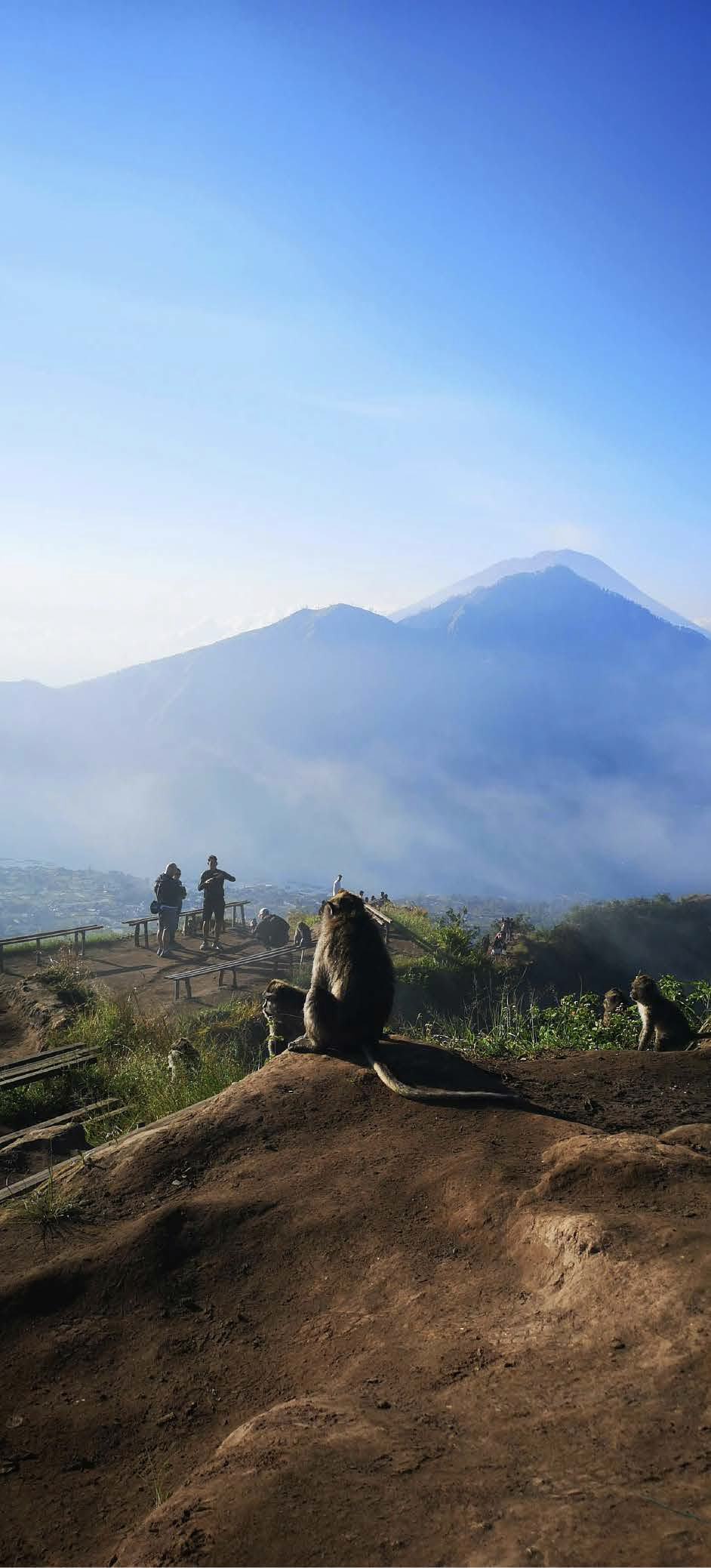
BALI ADVANTAGES
Bali Kintamani Coffee: Unique Properties
Unique Terroir
Kintamani's highland location, with its rich volcanic soil , cool climate and high altitude (900 to 1500 meters above sea level), creates an ideal environment for growing high-quality Arabica beans . The combination of these natural factors contributes to distinct flavor profiles not found in other regions.
Traditional & Modern Processing Techniques
Kintamani farmers use both fully wet and natural processing methods to enhance the coffee's qualities. The meticulous fermentation and drying techniques, passed down through generations, contribute to the coffee's unique flavors and aromas. These methods, combined with modern precision, help create a well-balanced cup.
Flavor profile
Kintamani green coffee is known for its crisp acidity , balanced sweetness and subtle fruity and floral notes . The clean and fresh flavors are enhanced by the region's controlled weather conditions, which slow the growth and ripening of the coffee cherries, allowing for a complex flavor build-up.
Traceability and origin
Kintamani green coffee is often traceable, allowing buyers to directly connect to the source. This transparency allows for better sourcing practices, ensures consistent quality, and builds strong relationships between farmers and traders.
